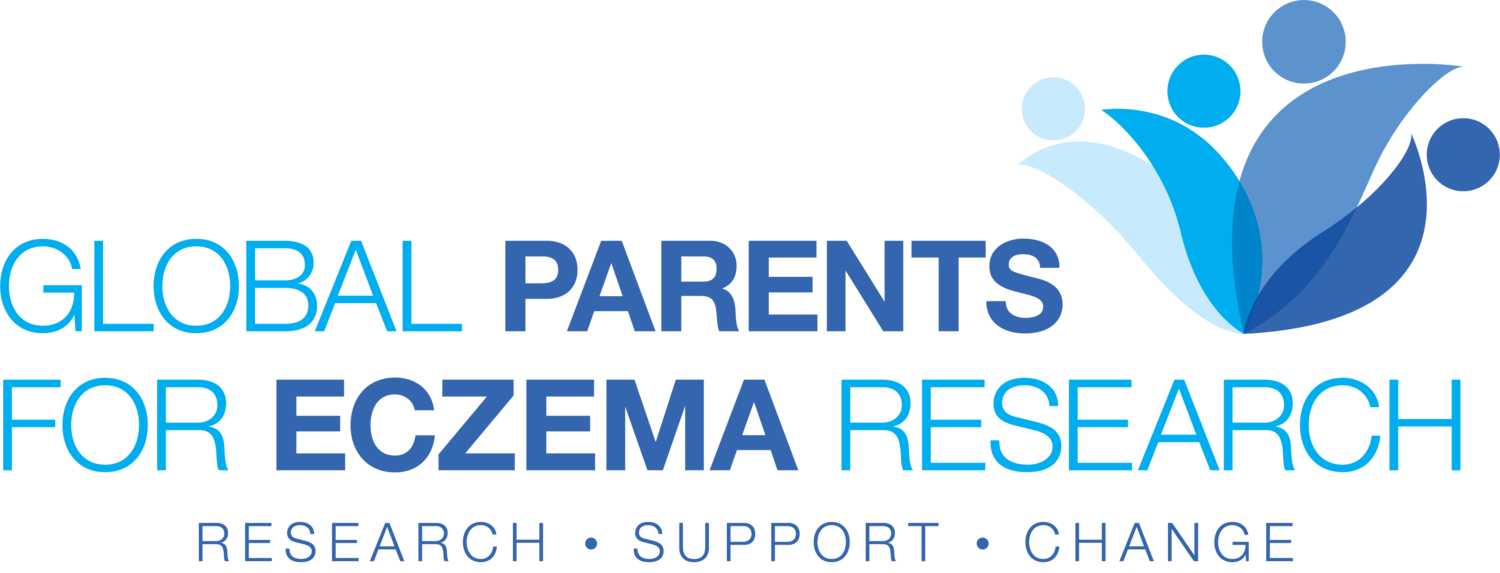Why Early Treatment for Eczema is Key for Your Child’s Future Health
Worried about your child's eczema? Discover the link between childhood eczema and a higher risk of food allergies, asthma, and other conditions. Learn why early, effective treatment is a game-changer for your child's future.
Eczema treatments can be confusing and concerning, leading parents to under-treat their child’s condition. But here’s a critical piece of information every parent should know: the longer a child's eczema goes untreated, the higher the risk for developing more serious eczema and other conditions like food allergies, asthma, and hayfever.
This cascade of allergic diseases is known as the "atopic march" and getting on top of your child's eczema is the first step in avoiding it.
What is the Atopic March and Why Does it Start with Eczema?
The atopic march is the typical pattern of allergic diseases that often begins in the baby years. It starts with eczema (atopic dermatitis), which can then lead to food allergies, followed by hay fever, and often culminating in asthma.
At the core of this progression is the damaged skin barrier in children with eczema. When the skin is dry, inflamed, and cracked, it allows tiny particles—like food allergens—to enter the body. This exposure can "sensitize" your child's immune system, training it to react to those allergens when they are later ingested with food introduction.
Published research provides compelling evidence for this connection. Here’s what we know:
Food Allergies: Multiple studies have shown a direct connection between the severity and persistence of eczema in infants and their likelihood of developing food allergies. Children with moderate to severe eczema face a significantly higher risk of developing common allergies to things like peanuts, eggs, and milk.
Overgrowth of bacteria on the skin: Staphylococcus aureus is a common bacteria that thrives on flaring eczema skin. Not only does it add to the skin’s irritation, it produces a toxin that makes the immune system much more likely to react in an allergic way to something innocuous, like peanuts. Children colonized with this bacteria are more likely to develop peanut allergy than children who are not colonized with it. They were also much less likely to outgrow allergies to foods like eggs. So getting on top of the eczema as soon as possible is not just about the eczema; it's also about preventing food allergies, treating food allergies, and even outgrowing food allergies.
Asthma and Allergic Rhinitis: Eczema is a major risk factor for developing asthma and hay fever later in childhood. The immune system’s overreaction that causes skin inflammation can evolve to cause inflammation in the airways and nasal passages.
Worsening Eczema: Leaving pediatric eczema untreated or inadequately managed creates a vicious cycle. Constant scratching further damages the skin barrier, leading to more severe flares and a chronic, harder-to-manage condition over time.
Beyond Allergies: The Broader Impact of Uncontrolled Eczema
The effects of chronic eczema extend far beyond allergic diseases. Uncontrolled skin symptoms can lead to other serious health issues, including:
Mental Health Challenges: The relentless itch and physical discomfort can profoundly impact a child’s quality of life, leading to anxiety, depression, and low self-esteem. Parents are also not immune to the stress and emotional toll.
Sleep Disturbances: Severe itching frequently disrupts sleep, affecting a child’s concentration, academic performance, and overall development.
Increased Infections: A damaged skin barrier is a breeding ground for bacteria, increasing the risk of painful and difficult-to-treat skin infections often caused by Staph aureus bacteria.
Empowering Parents: Your Role in Eczema Prevention and Treatment
Understanding the atopic march is not meant to be a source of fear, but a call to action. It highlights why proactive, evidence-based management of your child’s eczema is so incredibly important.
That’s why it’s so important to find a doctor or other healthcare provider who can help you find an effective treatment for your child and work with you to create an effective care plan. Tune into our latest podcast to learn more about best practices for eczema management and the latest in eczema treatments!
Remember: By taking control of your child’s eczema now, you’re not just managing their symptoms; you're actively working to prevent a lifetime of related conditions.
You are your child’s best advocate. Seek expert care, ask questions, and know that with the right treatment, you can change the trajectory of your child's health journey.
And if you’d like to connect with a community of other parents, consider joining our Caregiver Support Program: It’s free and available to any parent, anywhere!


